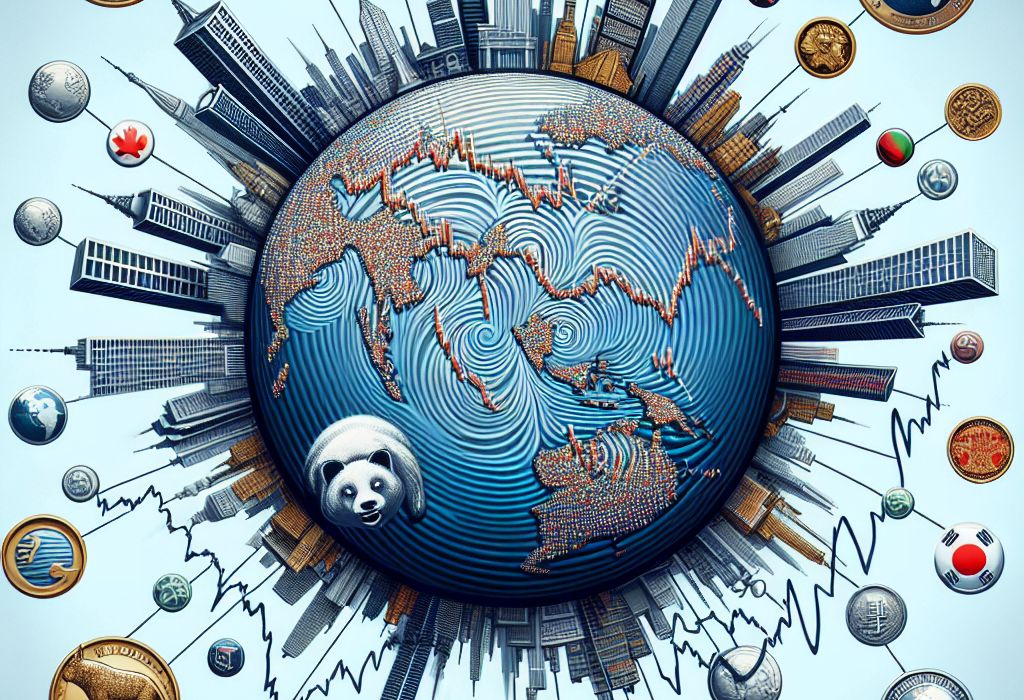Introduction
The intricacies of global financial markets are a topic of broad discussion and curiosity. The Ripple Effect on the world’s economic structure determines the financial health of countries and indirectly affects the everyday life of individuals. The term ‘Ripple Effect’ refers to the spreading influence or impact starting from a particular source, just as a ripple spreads across the water when an object is dropped into it. Understanding the ‘Ripple Effect’ in financial markets can provide valuable insights into the global economic scenarios and potential future trends.
Concept of The Ripple Effect in Financial Markets
The financial markets globally are interconnected and highly responsive to each other due to globalization. Any minor event occurring at the international level, such as changes in economic policies, political instability, natural disasters, or technological advancements, can have a profound impact on the global financial markets, leading to what is often termed as the ‘Ripple Effect.’ This phenomenon is widely seen in today’s interlinked economies where an economical event is not restricted to the source country but causes a chain reaction among other global economies.
The Mechanism of The Ripple Effect
The Ripple Effect in global financial markets operates through various channels, including trade relations, exchange rates, and capital flows. When a significant event like a violent conflict, disease outbreak, technological shift, or significant political change happens in a dominating economy, it can impact its trading partners directly. The change in bilateral trade relations would subsequently impact the exchange rates, causing a ripple effect in the financial markets across countries. Similarly, global capital flows, such as foreign direct investment (FDI) or cross-border lending, also play a crucial role. Changes in the policy rates in one country can lead to capital movement, altering interest rates in various economies, leading to a ripple effect.
Ripple Effect: Impact and Outcomes
The Ripple Effect can yield different outcomes depending on the nature and magnitude of the event unfolding in a nation. It might lead to opportunities for some nations while posing challenges for others. For instance, a technological breakthrough in a country could benefit other countries related through trade relations, thus causing a positive ripple effect. On the contrary, an economic recession in a dominant economy could decrease the import demand, affecting its trade partners negatively – a negative ripple effect. Hence, the ripple effect’s nature could be beneficial or destructive depending upon the incident and its global impact.
Conclusion
In essence, the Ripple Effect forms an integral part of the global financial market dynamics. It highlights how closely interlinked the world economies are and how changes in one can impact the others. While it presents its unique challenges, it also offers various opportunities to understand and analyze global economic scenarios and their potential impacts. Therefore, understanding the ripple effect is essential for investors, policymakers, and economies at large to respond proactively and effectively to the changing global financial trends.
FAQs
1. What is the Ripple Effect in global financial markets?
The ‘Ripple Effect’ refers to how an event or change in one country or economy spreads its impact across global financial markets. It emphasizes the interconnectedness of global economies.
2. How does the Ripple Effect work?
The Ripple Effect operates through various channels like trade relations, exchange rates, and capital flows. A significant event or change in a country can impact its trade, causing changes in the financial markets of associated economies.
3. Can the Ripple Effect be beneficial?
Yes, the Ripple Effect can be beneficial, such as when a technological advancement or a buoyant economic trend in one country creates growth opportunities for others.
4. What factors can cause the Ripple Effect?
Various factors can cause the Ripple Effect, including economic policy changes, political instability, natural disasters, disease outbreaks, or technological advancements.
5. Why is understanding the Ripple Effect important?
Understanding the Ripple Effect is crucial as it provides insights into how changes in one country can impact the global economic structure. It helps investors, policymakers, and economies at large to make informed decisions.













